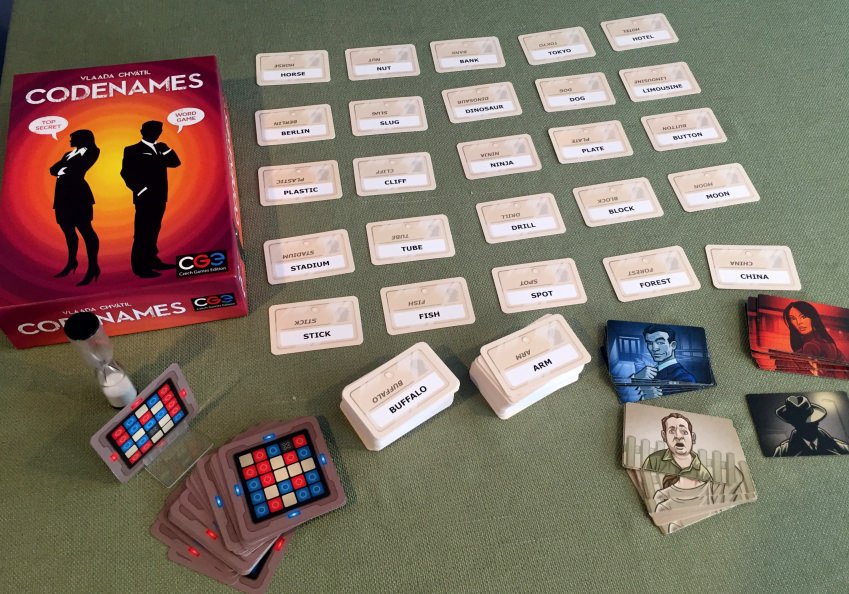6 Best Games to Bring a Group Together
Whether you’re a couple, a group of friends, a family, whatever— research shows that gaming brings people together. Gaming releases oxytocin, improves mood, promotes collaboration, and improves social-emotional skills. Here are 8 of the best games to bring groups together.
1) Codenames
(Great if you prefer indirect competition and wordplay)
This word-based party game encourages players to give one-word clues to help their teammates guess the correct words on a grid. It involves strategy, deduction, and lots of laughs.
2) The Resistance: Avalon
(Great if you prefer social deduction/deception)
Avalon is a classical social deduction game. Players work together to complete missions, but some players are secretly spies trying to sabotage the missions. It's a great way to test your ability to read others and build trust. Similar games include Werewolf.
3) Inventures
(Great if you prefer creative storytelling and pure collaboration)
Inventures is a collaborative storytelling game. It combines symbol interpretation mechanics (like Dixit) and role-playing (like Dungeons and Dragons) into a single barrel-of-laughs experience.
Like the best games for connection, the more you play Inventures, the better you’ll get to know your teammates. You create your own adventure as you go, so setup is fast and games can be played in as little as 1 hour.
4) Dixit
(Great if you prefer party games and beautiful visuals)
Dixit is a visually stunning game where players use abstract and imaginative illustrations to communicate through clues. It encourages creativity and understanding each other's perspectives.
Like all great party games, gameplay is fast and simple. I also love playing it on picnics!
5) Concept
(Great for fans of guessing games and symbol interpretation)
This game replaces spoken language with symbols and icons to convey concepts. Players collaborate to use these symbols to guess words or phrases, encouraging nonverbal communication and cooperation.
Concept does a great job of exploring how to communicate without words.
6) Dungeons and Dragons (or other RPGs)
Great for people with a dedicated player group with an appetite for heavier games)
Dungeons and Dragons (and other RPGs) exist on the far other side of the spectrum on game complexity- they tend to be very rich and complex, involve up-front dedication to learn the rules and create characters.
On the other hand, the payoff is equally rich- the platforms provide a lot of structure, and therefore a lot of freedom within that structure. With a dungeon master or story guide who provides the framework and leads the group along an adventures, many RPGs also require one player to exist outside of the conventional group. It’s a role many players enjoy, but others don’t- leading to a shortage of those story guides. For a lighter collaborative storytelling experience, without a DM, try Inventures.



